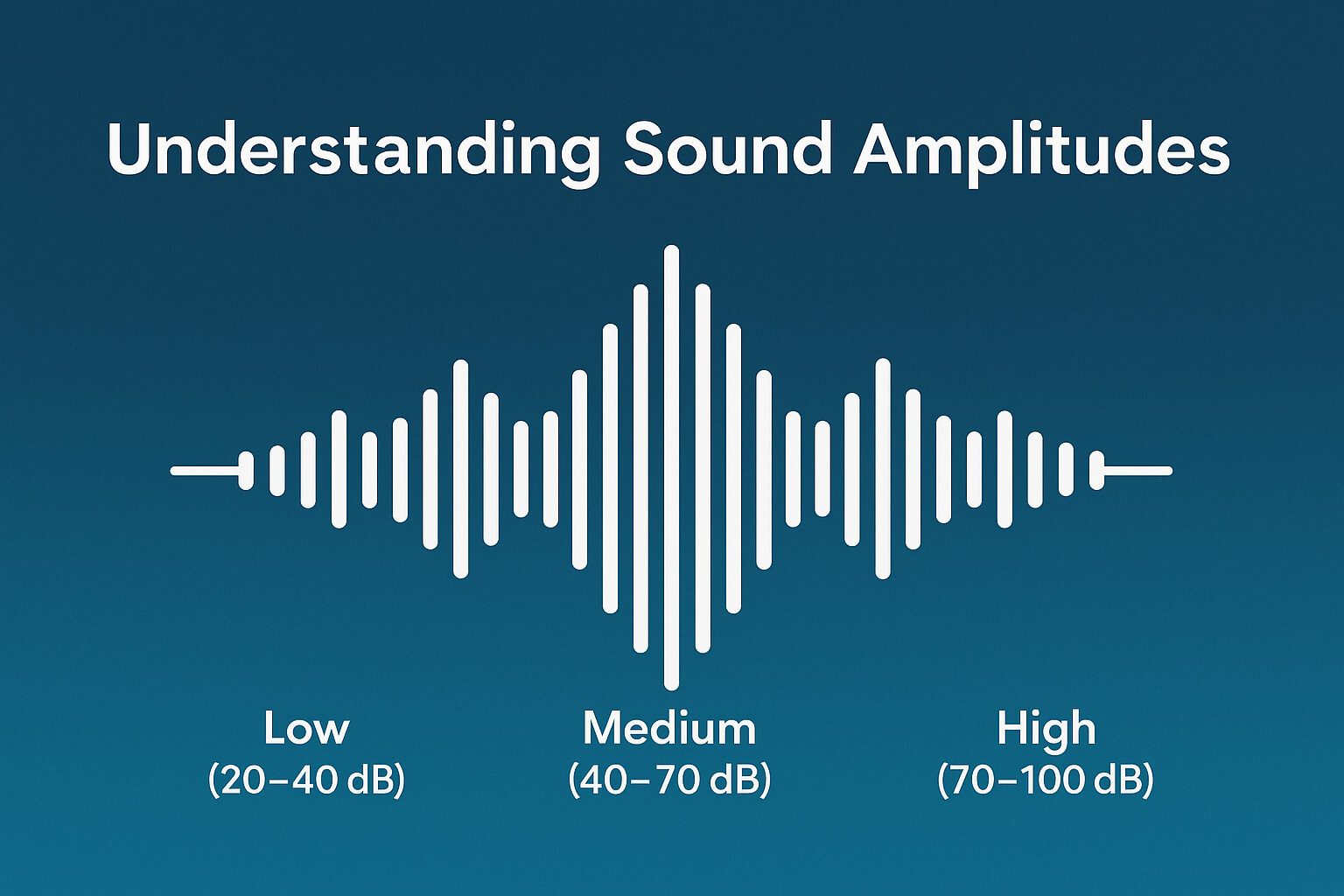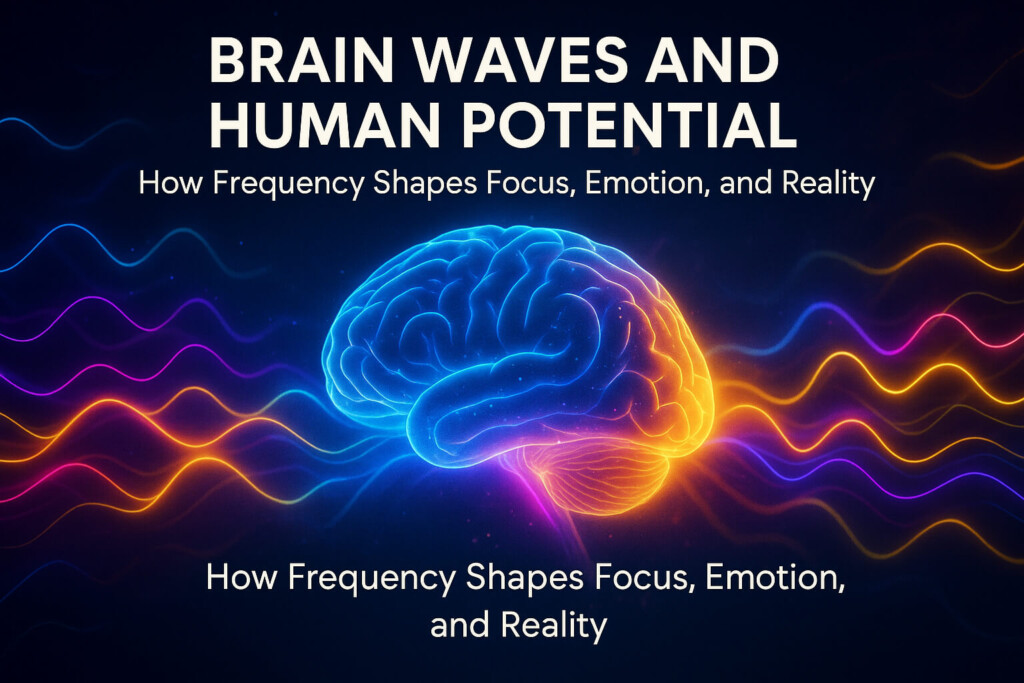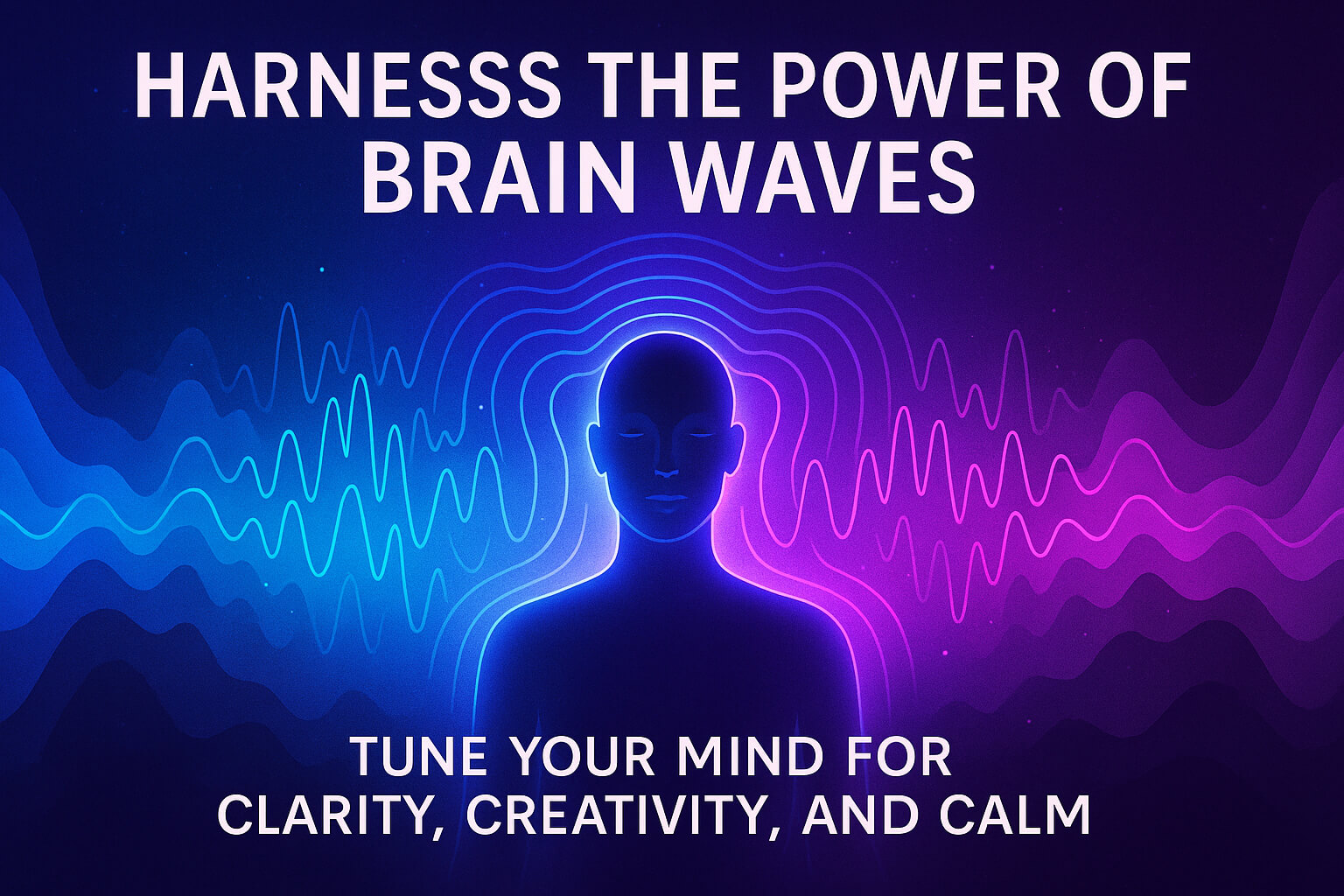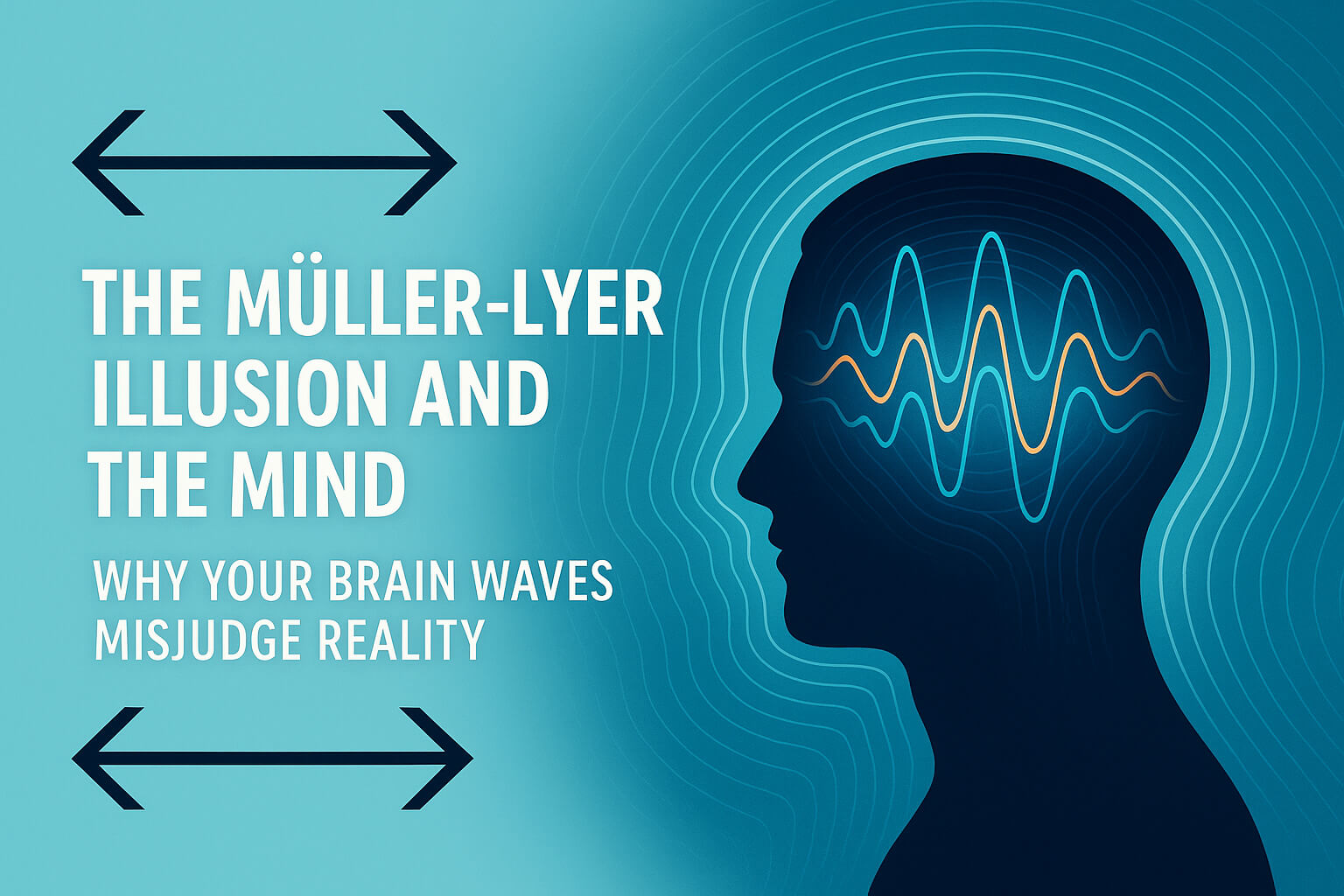Now Reading: Understanding Sound Amplitudes: The Science Behind Brain Waves and Hearing
- 01
Understanding Sound Amplitudes: The Science Behind Brain Waves and Hearing
Understanding Sound Amplitudes: The Science Behind Brain Waves and Hearing

🌟 Introduction
Each and every sound you hear — a quiet whisper or a deep bass growl — has an unseen pulse that comes with it, called amplitude.
But you may not know that amplitude doesn’t just shape sound; it can also affect your brain waves and your emotional responses.
The brain and sound are intimately connected. And when frequencies and amplitudes engage, they produce detectable changes in your mood, energy level, alertness.
🔊 What Is Amplitude in Sound?
Amplitude is how loud a sound is.
The higher the amplitude, the louder the sound and vice versa.
These differences have a strange relation to how your auditory system and brain respond.
Sound waves from your ears vibrate the microscopic hair cells in your cochlea, transforming sound into electric signals.
These signals head to the auditory cortex, causing specific patterns in your brain waves — the electrical impulses that represent your state of mind.
🧠 How the Brain’s Waves on Music’s Sound
Different sound amplitude has different response to each brain wave frequency:
Delta waves (0.5–4 Hz): The slowest and lowest frequency tones promote ultra-deep, restorative sleep.
Theta waves (4–8 Hz): Sound pulses strengthen creativity and conscious awareness.
Alpha waves (8–12 Hz): Even medium levels of amplitude lead to feelings of calm focus and flow.
Beta Waves (13–30 Hz): Sudden, louder sounds = heightened alertness and activity in the mind.
Sound amplitude is in a way the volume control of your brain, increasing or decreasing energy or emotion or attention with each buzz.
🎧 The Genius Wave and Sound Entrainment
The Genius Wave capitalizes on that link by changing the way sounds – amplitude modulation – to help you synchronise your brain waves with your goals.
Entrainment: Your brain has the ability to accommodate external rhythms with sound, and in doing has benefits for stabilizing, being clear and being balanced.
Daily listening can help you:
Relax faster
Boost focus and motivation
Improve sleep and stress control
Enhance creativity and problem-solving
🔬 The Science of Sound and Emotion
Research indicates that amplitude-driven sound stimulation is capable of invoking the limbic system, the emotional part of our brain.
In other words: Loud noises agitate or alarm you, and soft sounds soothe you and bring you back to center.
By manipulating the volume and pitch of sound, you can quite literally tune your brain to any mental state.
💡 Conclusion
All sounds that reach your ears can influence your thinking.
By learning to control how amplitudes and brain waves dance together, one can actively manifest emotional stability and mental clarity.
👉 Discover The Genius Wave™: the intersection of sound, science & self-mastery.
👉 Related read: ADHD and Binaural Beats: Can Brainwave Music Improve Attention Naturally? for more insights on brainwave focus and mental clarity.

















